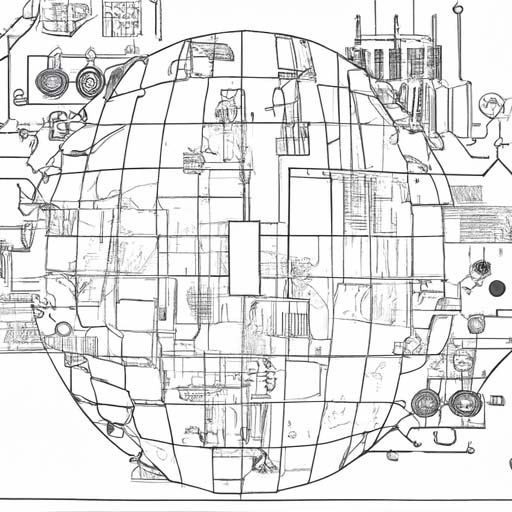Welcome to our article on the transformative role of automation in medical diagnostics, treatment, and care. In recent years, the healthcare industry has witnessed significant advancements in technology, leading to the integration of automation in various aspects of patient care. From robot-assisted surgeries to AI-powered diagnosis, machines are now playing a crucial role in saving lives and improving healthcare outcomes.
The Rise of Automation in Diagnosis
Gone are the days when physicians solely relied on their knowledge and experience to diagnose complex medical conditions. With the advent of automation, diagnostic processes have become more accurate and efficient. Advanced algorithms and machine learning techniques now help doctors analyze vast amounts of patient data, allowing for timely and precise diagnoses. (Imagine the countless lives saved by early detection!)
Automated diagnostic tools, such as medical imaging software, have revolutionized the way healthcare providers detect and interpret abnormalities in medical images. Be it X-rays, MRIs, or CT scans, these intelligent systems can quickly identify anomalies that might go unnoticed by human eyes. By highlighting potential areas of concern, radiologists can focus their expertise on the most critical cases, ultimately improving patient care.
Furthermore, automation has also found its way into laboratory testing. High-throughput analyzers and robotic sample processors enable healthcare facilities to handle large volumes of samples with unparalleled precision and speed. This not only reduces human error but also expedites the delivery of test results, leading to faster treatment plans for patients.
Enhancing Treatment and Care with Automation
The benefits of automation extend beyond diagnosis and into treatment and patient care. Robotic technology has significantly advanced surgical procedures, allowing surgeons to perform complex operations with unparalleled precision. (Just picture an autonomous surgical robot assisting a skilled surgeon’s delicate hand movements!) These robot-assisted surgeries offer improved outcomes, reduced complication rates, and shorter recovery times for patients.
Add to that the application of artificial intelligence in disease management. With AI-powered algorithms, healthcare providers can analyze vast amounts of patient data to predict disease progression, identify optimal treatment plans, and even offer personalized care. This data-driven approach enables clinicians to make informed decisions quickly and efficiently, leading to improved patient outcomes.
Automation is not only benefitting medical practitioners but also improving patient experience. From automated appointment reminders and virtual consultations to AI chatbots that provide instant answers, technology is enhancing communication between patients and healthcare providers. Patient portals and telemedicine platforms enable convenient access to medical records, test results, and prescription refills, empowering individuals to take control of their own healthcare.
Addressing Challenges and Ethical Considerations
While automation brings numerous advantages, it also presents its fair share of challenges and ethical considerations. The issue of job displacement among healthcare workers is one such concern. As certain tasks become automated, healthcare professionals need to adapt to new roles that require advanced skills in managing and interpreting the data provided by these technologies.
Add to that the question of data privacy and security. With automation comes a vast amount of sensitive patient information that needs rigorous protection to safeguard privacy. Healthcare organizations must prioritize robust cybersecurity measures to ensure that patient data remains confidential and protected from unauthorized access.
Furthermore, ethical dilemmas arise when it comes to trusting machines with critical decision-making processes. While automation can provide unparalleled speed and accuracy, it still requires human oversight and intervention. Striking the right balance between human expertise and automated systems is crucial to ensure safe and responsible use of technology in healthcare.
The Future of Automation in Healthcare
As technology continues to advance rapidly, the future of automation in healthcare holds incredible possibilities. From wearable devices that continuously monitor health parameters to AI-powered virtual assistants guiding patients through post-treatment care, the potential for automation to revolutionize healthcare is vast.
However, it is essential to approach automation in healthcare with caution and thoughtful consideration. As machines become more integrated into patient care, the human touch and empathy of healthcare professionals must never be lost. Automation should complement, not replace human caregivers, ensuring that patients receive not only advanced technological interventions but also the compassionate care they deserve.
In conclusion, automation in healthcare is a game-changer, with machines playing a vital role in saving lives, improving diagnoses, and enhancing patient care. As technology continues to evolve, it is crucial to navigate the ethical, social, and practical challenges that come with automation. By leveraging automation intelligently and responsibly, we can optimize healthcare outcomes and create a future where machines and humans work hand in hand to deliver the best possible care.
